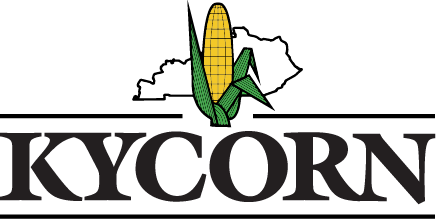Kentucky among states granted a waiver to sell lower-priced E15
We are offering our thoughts and prayers to those who have suffered and continue to struggle with the horrific devastation brought by Tropical Storm Harvey to Texas and Louisiana.
Harvey continues to present huge logistical challenges, not the least of which is the virtual shutdown of the oil refinery business in South Texas, including the closure of more than a dozen refineries and the Colonial Pipeline, which on a daily basis carries at least 100 million gallons of gasoline, heating oil and aviation fuel as far as New York. The disruption in Texas is resulting in uncertain gasoline supplies and higher prices at stations across the country.
The impact the storm has had on the oil industry puts a spotlight on the vulnerability of the nation’s transportation fuels, and the need to develop and expand policies and safeguards that can maintain an adequate supply in times of unprecedented catastrophe.
One way to do so is to diversify our transportation fuels, and domestically produced ethanol is an excellent example of a fuel that can help fill the void caused by disruptions in gasoline supplies. Ethanol is less expensive (it’s currently priced about 50 cents cheaper than gasoline blendstocks) and has served over the past decade to boost revenues and create jobs, particularly in economically hard-hit rural areas where jobs are needed.
Furthermore, with lower emissions, ethanol has offered a cleaner source of transportation fuel that can also raise the octane of gasoline making the fuel cleaner and more efficient in vehicles optimized to run on them.
And while U.S. oil development has grown in recent years mitigating U.S. dependency on foreign oil, ethanol has facilitated even greater U.S. energy security by further reducing the need to import oil from nations hostile to the United States (in 2015, some 24 percent of petroleum products in this country were imported, a share that could have risen to 32 percent without domestically produced ethanol).
Geographic positioning, an abundant supply and readily available means of transportation (principally railroads), make ethanol a critical part of this nation’s energy strategy. The widespread production of ethanol throughout the nation stands in stark contrast to an oil industry that focuses so much of its processing and exporting in a region that has, and will likely continue to remain, susceptible to calamitous weather episodes. Yet, as the benefits of ethanol as a high-octane, low-carbon alternative to gasoline continue to grow, there are still shortsighted federal policies limiting its use.
Under the current conditions, EPA has conditionally recognized the disruption occurring in gasoline supplies, lifting Clean Air Act requirements for gasoline and diesel fuel sold in Texas, Louisiana and 10 other Southeastern states (including Kentucky), and the District of Columbia. The agency approved and expanded a waiver covering reformulated gasoline, low Reid vapor pressure (or RVP, a common measure of volatility) and low-emission diesel requirements for the region.
The waiver announced late last Wednesday represents an expansion of an earlier, narrower version that originally applied only to Texas and Louisiana and would have essentially limited the use of low-cost, locally available ethanol supplies to help alleviate gas price spikes resulting from Harvey to only those two states. The expansion allows for greater relief to others states that are likely to be impacted by higher fuel prices over the coming weeks, and will essentially end the summer limits to the sale of E15 in many of these areas.
We commend EPA for allowing for expanded use of higher ethanol blends in this time of crisis, but the agency can and should do more by removing the regulatory roadblocks that are blocking the introduction of mid-level ethanol fuel blends. Ethanol is helping meet fuel needs during this ongoing crisis, but it is also a viable means of meeting the nation’s future transportation fuel goals.
Portions of article from 25 x ’25 Alliance.


